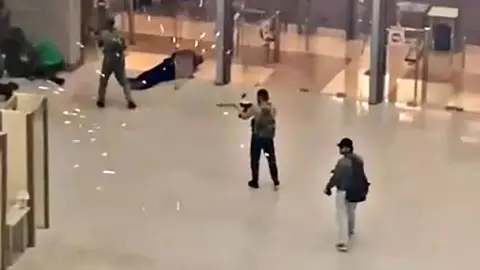Expelled from paradise
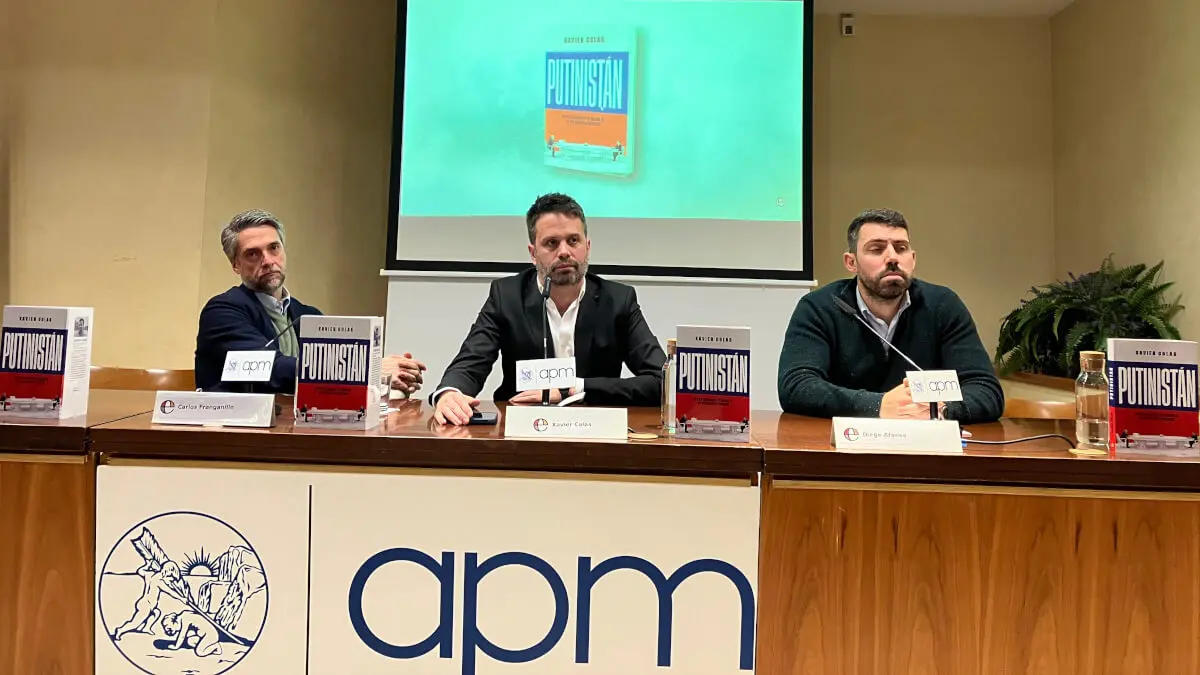
Vladimir Putin's three threats after winning 'North Korean style' (87.97%) the presidential elections in mid-March are still valid: to use his nuclear power if the Europeans send troops to Kiev, to intensify the bombing of Ukraine and to expel untamed correspondents. And the first one, the correspondent of EL MUNDO, Xavi Colás. A Russian official told him he had 24 hours to leave the country or "face the consequences". It is easy to guess the consequences.
In three suitcases Xavi took all his immediate past to Istanbul; twelve years of work (2012-2024) as a direct witness. In journalism, telling the truth is always revolutionary. His last chronicles signed from Moscow were the harbinger of a foretold expulsion. "Putin calls for 'voting for patriotism' in his mock election in Russia" (15.03.24), "Medvedev has radicalised in search of a place behind Putin" (16.03), "Insult in the wastebasket against an inevitable Putin" (17.03), Putin presents his triumph as Russian support for the war in Ukraine: "no one will be able to defeat Russia". "A leader addicted to power and a power addicted to him" (18.03) and "Imperial choreography for Putin" (19.03.24).
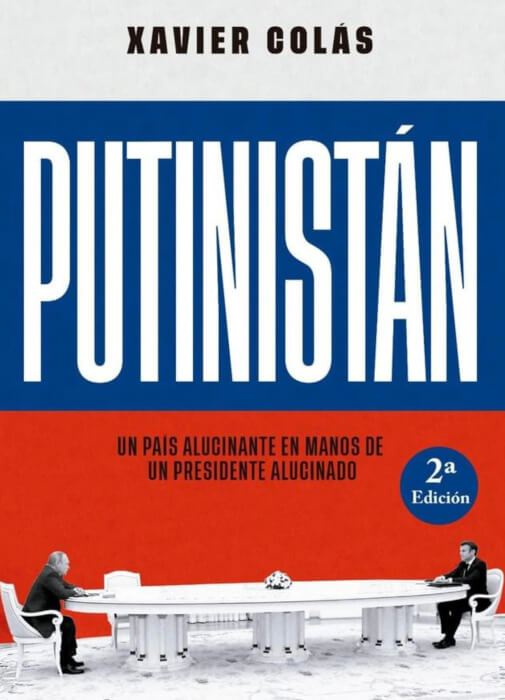
Gone are the seven consecutive front pages on the start of the Ukrainian war from Kiev that did so much damage to the new tsar's pride. For telling what was going on, his name was blacklisted as unfaithful to the regime. Totalitarianism neither forgets nor forgives.
The next day, EL MUNDO confirmed on its front page that Russia had expelled its special envoy, Xavi Colás. It was the eve of Friday of Sorrows. Forty-eight hours later, the Islamic State struck at the pride of the tsar, provoking a "Christian" massacre that has left more than 140 dead and hundreds wounded. The MI5 and CIA secret services had warned the Kremlin in early March that a major attack was being prepared. They did not heed.
Putin ignored the information and took the opportunity to destroy vital energy infrastructure in Ukraine. Even knowing that the Islamic State had twice claimed responsibility for the attack - including the slitting of throats - because of Russia's presence in Syria, Putin stuck to his story: Ukraine was to blame and the US was the instigator. Zelenski called him a wretch, a bastard and an evildoer. And the EU as usual appeasing the lion.
Underground
Putinistan is not a country; it is a dictatorial regime spread over 17.4 million square kilometres, with 143 million men and women, - most of them with the souls of slaves - where the survival of one man alone justifies the massacre of a people of 44 million souls who want to be free: Ukraine.
In 2014, the occupation of Crimea came for free. Europe looked the other way. The war in the Dombas corridor, Russia's outlet to the Black Sea and the Mediterranean, serves the same expansionist and provocative function as the Nazi invasion of Poland.
Xavi Colás's book Putinistan confirms that Vladimir Putin's fate is tied to the victory or defeat of this "special military operation", which has become the closest threat to the Old Continent if, in addition, Trump wins the US presidential election on 5 November.
I attended the presentation of the book at the Madrid Press Association. The APM condemned the expulsion and denounced the lack of freedom of expression in the former Soviet Union.
A full house. Diego Afonso gave the introduction. It is always difficult to introduce the book of a journalist friend.
Carlos Franganillo, RTVE's Moscow correspondent between the first and second decade of this century and today presenter of Diario de la Noche on Telecinco, knows the situation very well. The two men engaged in a dialogue from which we drew the following ideas: Putin's three heroes are in the ground: oil, gas and the twenty million dead from World War II. The external enemy today is Ukraine - "it must be crushed" -; internally, he finished off Yevgeni Prozoshin, leader of the Wagner mercenary group, and two weeks before the elections, opposition leader Aleksei Navalni.
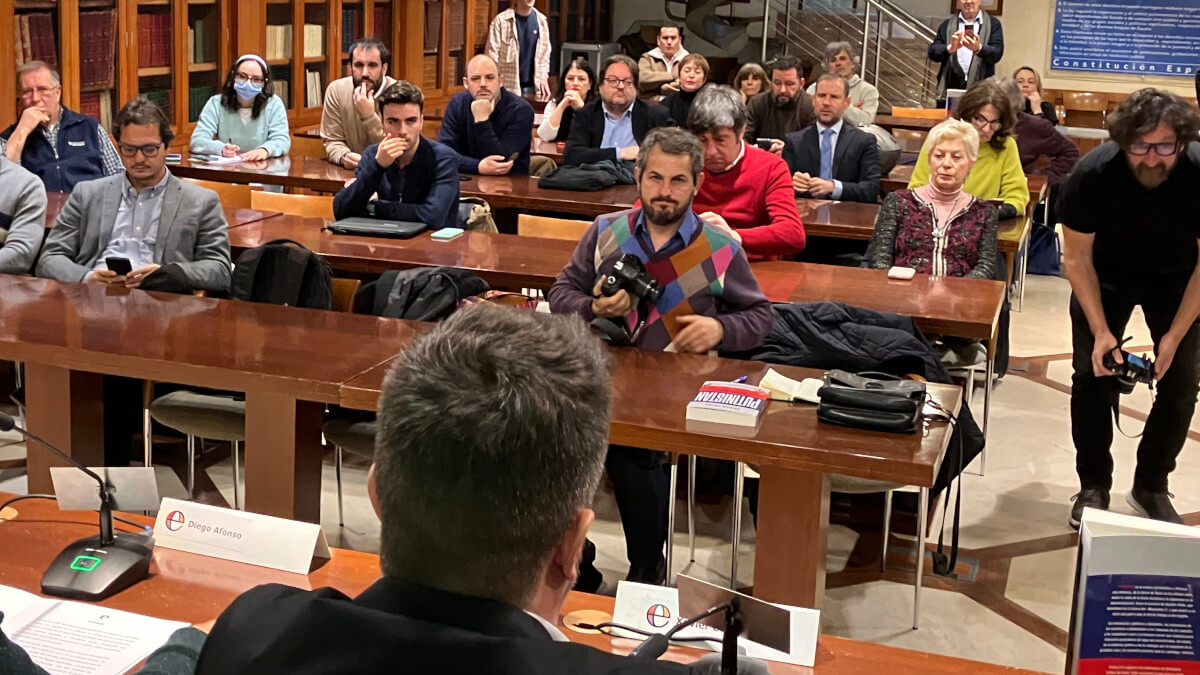
On 13 February, the armed wing of Russian espionage abroad assassinated in Villajososa (Alicante) the former helicopter pilot Maxim Kuzminov, who had fled to Ukrainian territory. Five shots in the head ended the life of this "criminal traitor" who had become a "moral corpse" after his defection. All opponents are always in the crosshairs. Our Foreign Minister is thinking of opening a dossier. Moscow trembles.
Putinism is not a strong feudal lord who convinces; it's a system that compels you to throw down weapons and if you don't, it threatens you. Homosexuals are another direct danger to the state, to eternal Russia.
Correspondents in today's Russia have lived in a bubble believing that there was freedom of expression. The arbitrary," Xavi Colás stressed, "is the best fuel for fear, although the worst part is borne by dissident journalists. There is no free press left in print or digital format; most colleagues have had to be exiled and many are considered spies in the Baltic republics".
The big lesson about Putin is simple: "the Kremlin dictatorship - Kremlin means wall - must be feared". To this end, it controls all branches of government, especially the army, the police, the judiciary, the secret services, the Duma, the entire print media, television, social media and, most decisively, energy power.
The economic and social crises of 2007 turned Russia into a respectable and respected world power thanks to its treasures under the ground.
So much so that Germany's Social Democracy and Christian Democracy succumbed to its charms. The energy dependence of the FRG (Gerhard Schroeder, Angela Merkel and Olav Scholz) - the peace of trade - made us believe that economic growth is compatible with democracy. What a mistake, what a huge mistake! Billionaires are scandalously rich there because Putin himself protects them. And the mafias leave no room for freedoms.

Mind-boggling country, mind-boggling president
To wander through the more than 400 pages of Putinistan - the infinite space of 'tovarich' Vladimir - is to plunge into a dark world where all the paths of the man who wanted to be a sailor or an aviator became a secret policeman, a member of the KGB - now FBS - in his hometown of Leningrad, now St Petersburg.
His "spy-in-chief" was none other than Yuri Andropov, first general secretary of the CPSU. Gorbachev's "perestroika" (1985) widened his ambitions. Nobody like Putin knew how to take advantage of the opportunities of the democratic impulse that Boris Yeltsin, Russia's first president from 1991 to 1999, tried to give.
Xavi Colás weaves the warp and woof of a politician who has been hardened in the sewers of the state until he has positioned himself as the new man, the Russian saviour of the 21st century.
His fixation with - or rather against NATO - helped him to concentrate a great deal of internal power that led to a nationalism supported by the Orthodox Church and, at the same time, to an imperialism with populist reminiscences.
The new Tsar of all the Russias was born. With this Napoleonic philosophy he reached the Everest of power in 2000 until 2008. It was the beginning of his Stalinist strategy. The cult of personality regained the splendour of the times of Lenin and Stalin.
During all this time the Kremlin is where Putin is. During Menvedev's term (2008-2012) he gave up the Russian presidency and agreed to become Prime Minister. Then he tore up the Constitution and proclaimed himself "dictator for life" in 2020 like a Roman Caesar. His 20 years in power augur that he can go on until 2036. His fifth term will not be his last.
Putin knows that power needs walls; walls and lies, and no one builds them like him on the basis of blackmail and fear. Nothing that communism has not developed since 1917. Terror is the basis of the "pax soviet".
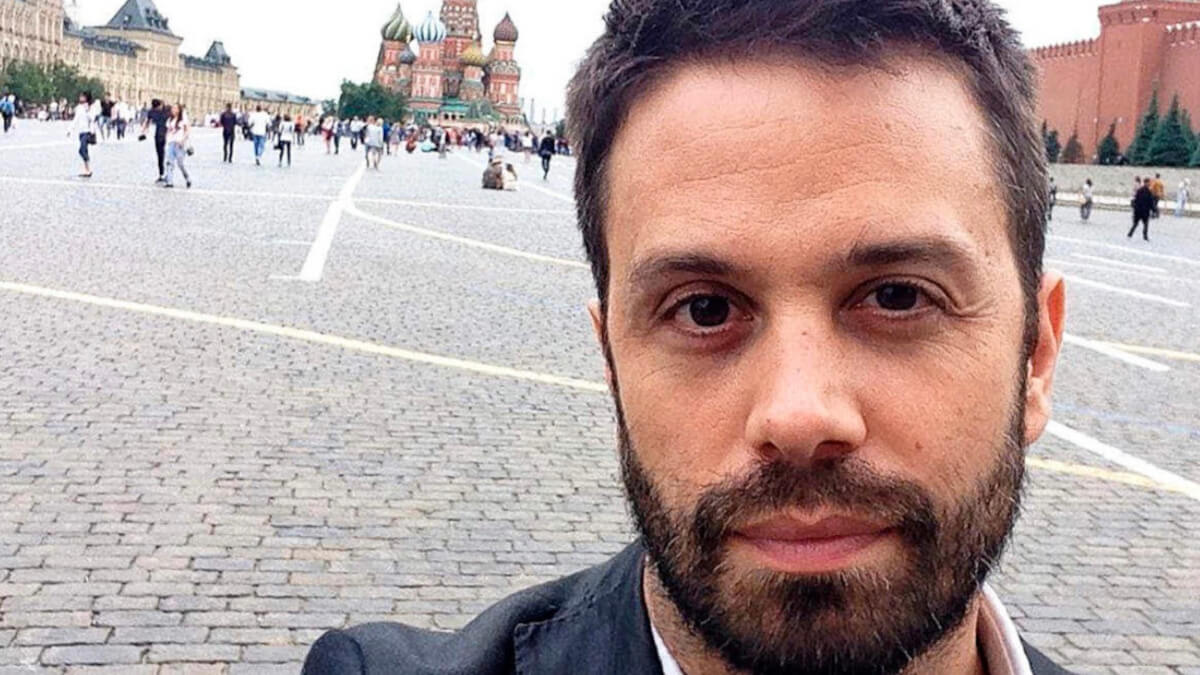
Putinistan is a treatise on a form of rule against all. Democracy is not just any place where you vote. Suddenly it is too late to open institutions to a non-existent civil society.
Putin, like Maduro or Díaz Canel, plays with the most lethal weapon: fear. And as John Paul II explained, "one cannot live in fear". We learned from President Adolfo Suárez, with ten years of interminable absence, that "you have to lose the fear of fear".
Vladimir Putin's greatest strength is his ability to manipulate the narrative. Truth is incompatible with reality. We have seen this in the aftermath of the Moscow bombing. His 'disappearances' are part of his communication and disinformation strategy. The Federal Protection Service (PSO) acts as an accomplice to all their moves.
This text should be studied in the Faculties of Political Science, Journalism, Advertising and Public Relations so that the students learn to argue that the methods of communism are still in force.
In the Diplomatic School, the teachings of Colas should awaken the intolerant right-wingers and leftists that Putin and his troops do not accept dialogue.
Their threats always find a justification for attacking the West. With or without a motive.
While Macron bets on sending troops to Zelenski's relief, the warm-hearted are inclined to "buy arms" on the international market to give them to Kiev. Our military weakness will only be solved by defensive autonomy. Money, money and money. And Spain, without budgets.
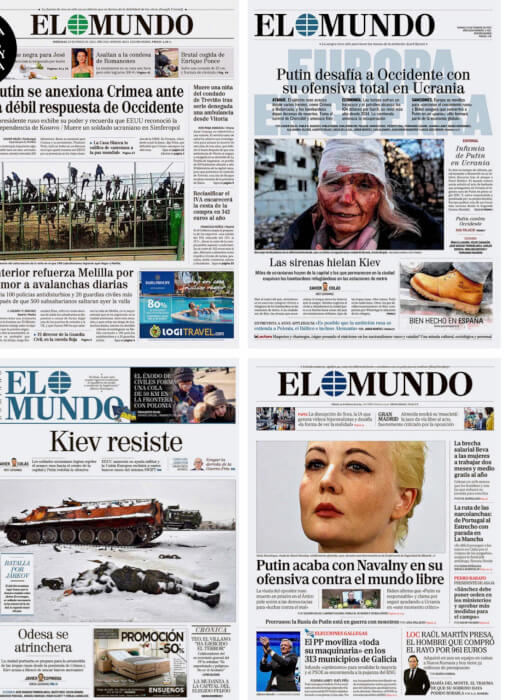
Ukraine, our war
Russia has to win the Crimean war because Putin's future is tied to this illegitimate aggression. But the EU cannot lose it because we would be left in the hands of a phoney who would annex Moldova, Latvia, Estonia, Lithuania and continue with Poland, Finland, Norway and Sweden. Win or lose. That is the question.
In Putinistan, all the keys to the Russian invasion are explained. Dombas is the end of the world and if a single centimetre of land is given up in the negotiations, the EU will return to the 1930s. The rain of rockets on Kiev is the massacre of a butcher who thinks he is Alexander the Great.
He is simply a paranoid who knows our cowardice. Russians and Ukrainians are not "one people". That he believes gives him the "right" to annexation and, if not, destruction, Putin insists.
Russia helped dethrone Hitler but inherited the worst of Nazism: perpetual lies and repression. A Nazism that has awakened after the end of the Cold War.
Europe needs to abandon do-goodism, confront our enemy to the east with or without NATO and preemptively 'strike' beyond the horizon. Nobel laureate Andrei Sarajev warned us that "a country that does not respect the rights of its own citizens will not respect the rights of its neighbours". So there it is.
If Ukraine loses the war, we all lose. After all, we are three quarters of an hour away from Russia's supersonic rockets. This has been our war for 25 months.
A must-read book
The caution and restraint with which Franganillo and Colás spoke about the conditions of reporting from Russia fuelled my journalistic intuition that the book would bring problems for the author and have immediate consequences.
Colás arrived in Moscow with his recent visa and had time to attend the elections without opponents; with the book in all the windows, the Embassy in Madrid would take three days to read the text and another two to draw up a small report declaring an independent journalist persona non grata. Freedom has to be won every day.
Expulsion from paradise was a matter of hours. Xavi Colás knew it. The truth, we insist, is always revolutionary. Russia, an amazing country, is in the hands of a delusional leader. A danger for the entire West.
Putinistan is an essential text to learn how we got here and to alert us to the fact that we must fight with all our might to continue to maintain our Judeo-Christian civilisation and our Greco-Roman democratic values.
Putinistan is a wake-up call to the consciences of the equidistant. And very well written. It is read in one sitting. Xavi comes from his own breed. He was born in Alcalá de Henares, 1977, homeland of Miguel de Cervantes Saavedra. An essential book.
Antonio Regalado is a journalist and directs BAHIA DE ÍTACA at:
aregaladorodriguez.blogspot.com



